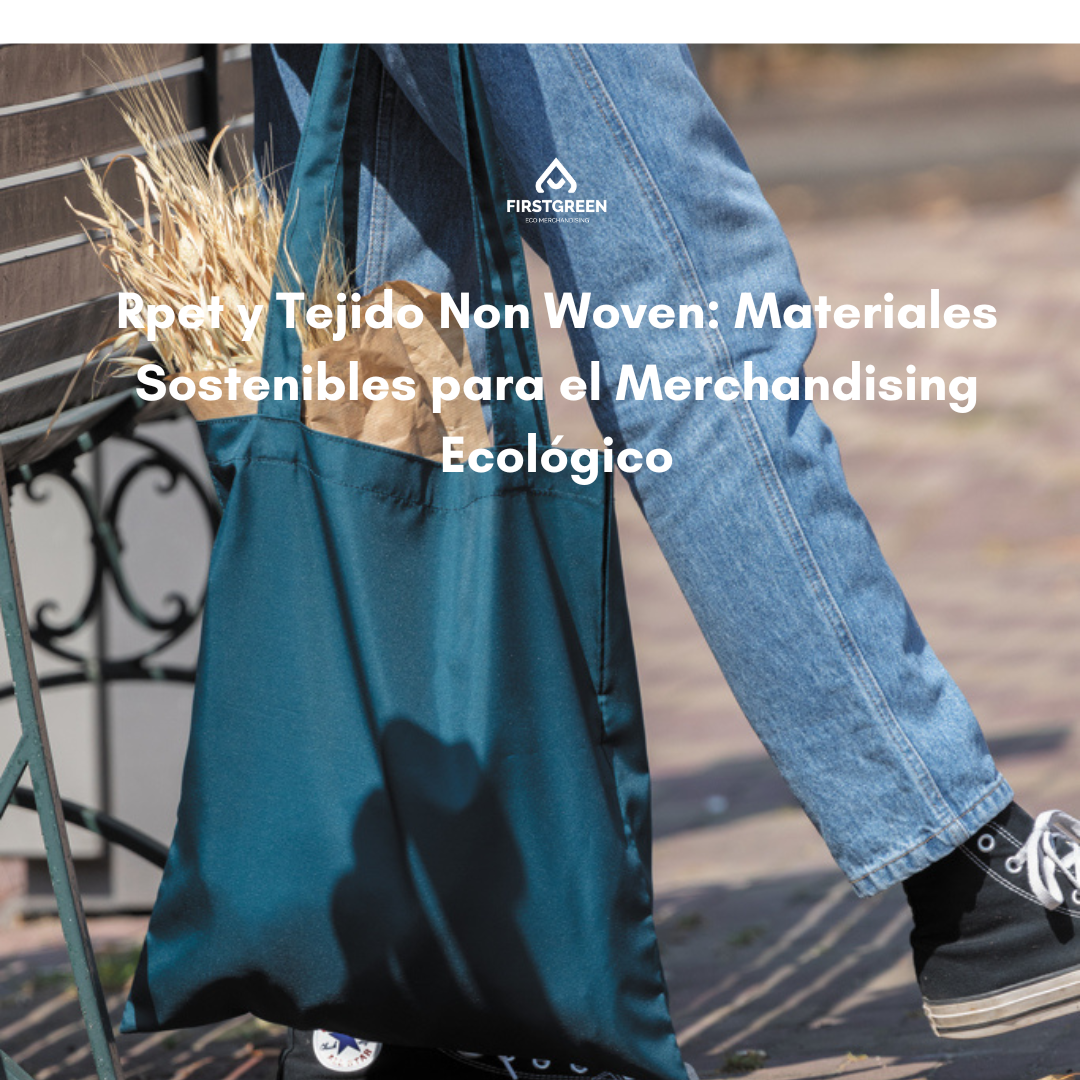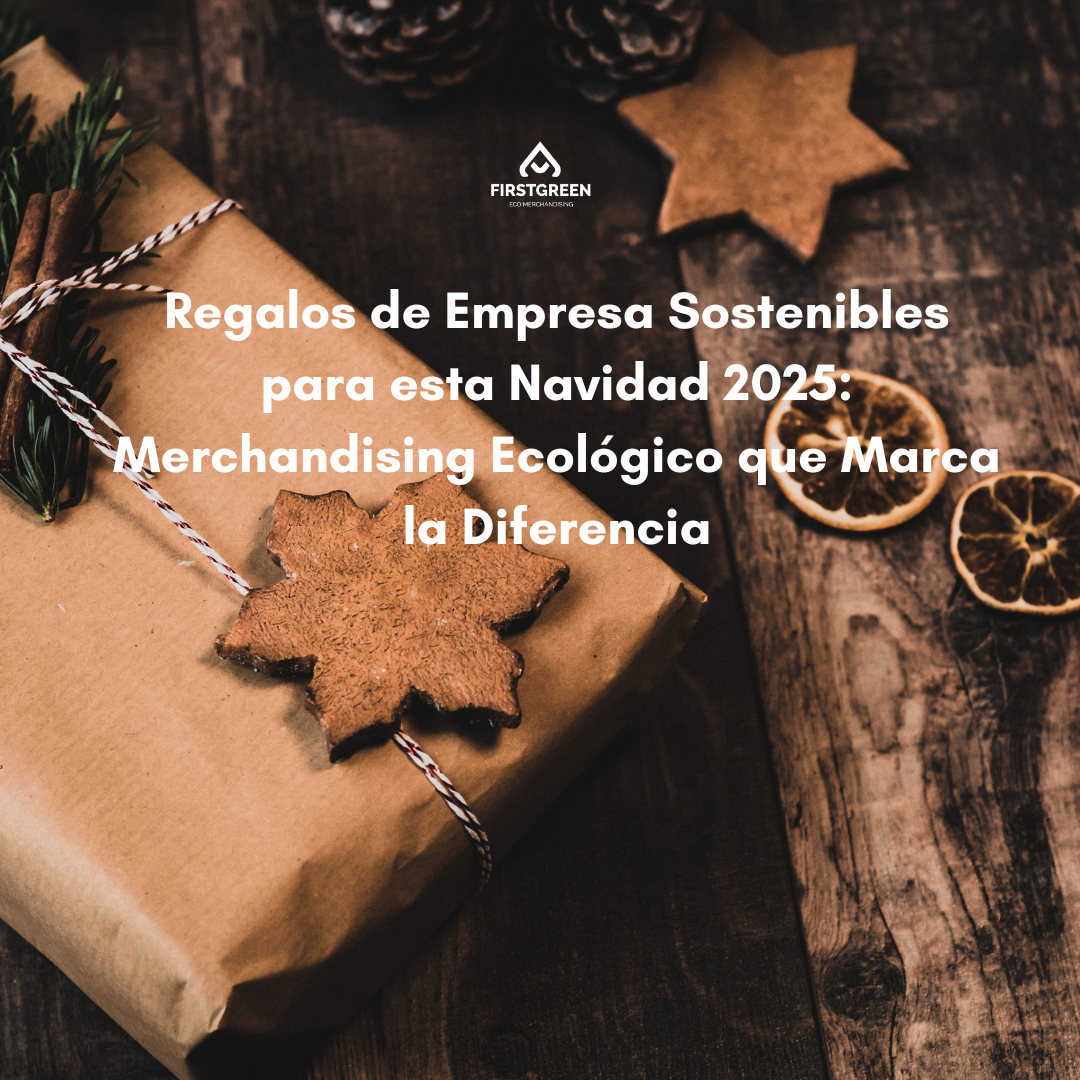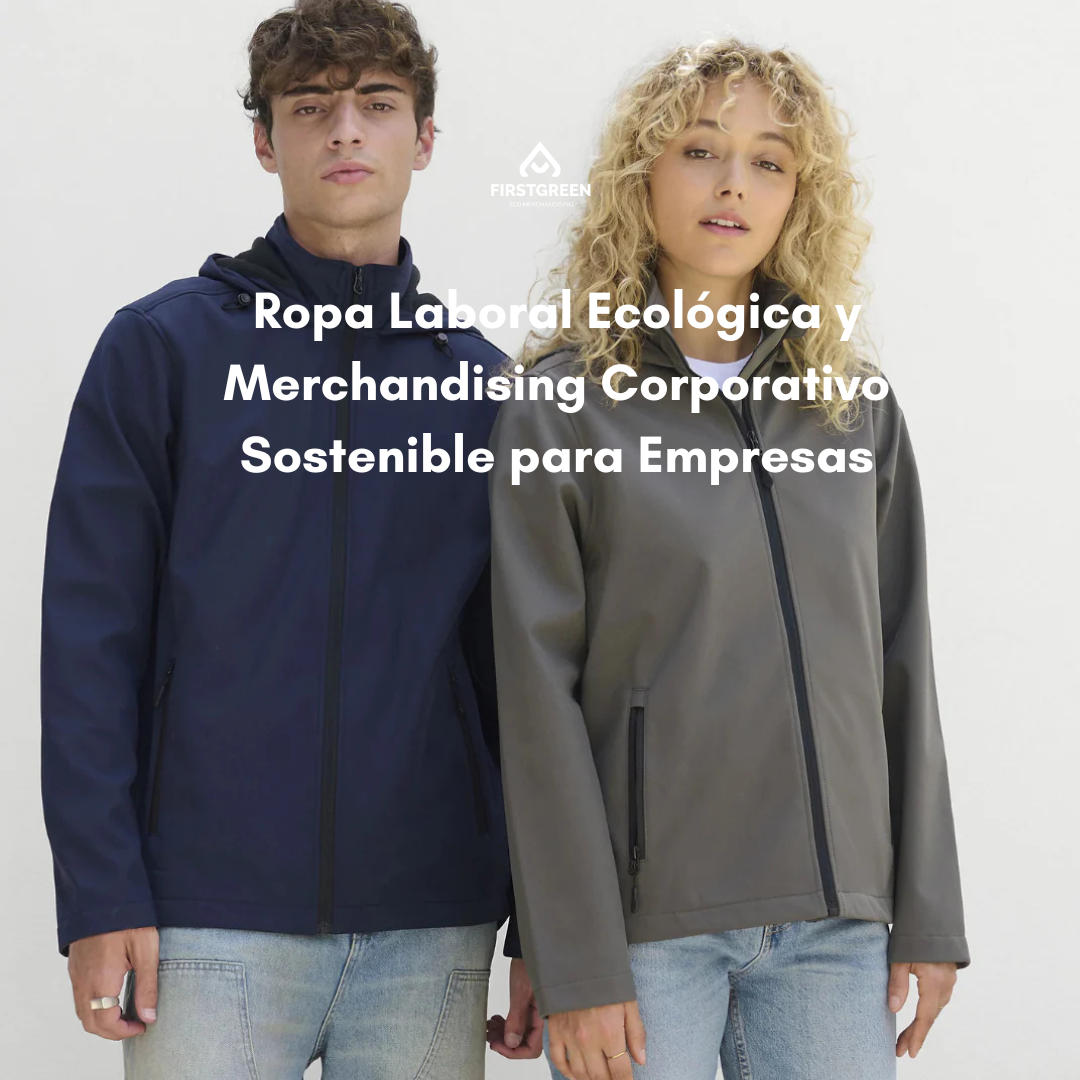Achieving a reduction in the environmental impact and carbon footprint of consumer products and everyday actions are carbon footprint reduction strategies that many companies have implemented as part of their corporate awareness of sustainability. Personalized eco-friendly merchandising is therefore becoming a key trend for environmentally friendly companies. Among the most popular materials for eco-friendly merchandising are: CO2Gifts highlights RPET and nonwoven fabric. Below, we explain what these materials are, how they contribute to the environment, and which personalized eco-friendly products stand out in today's market.
What is RPET?
RPET (recycled polyethylene terephthalate) is a material obtained from the recycling of plastic bottles. RPET's ability to be a recyclable material already allows it to be considered an ecological alternative to virgin plastics, reducing the need to produce new plastics and, therefore, decreasing the carbon footprint associated with its manufacture.
This material is strong, lightweight and versatile, making it a perfect choice for making sustainable RPET products such as RPET bags, backpacks, t-shirts, workwear and custom reusable bottles. In addition, using RPET in custom eco-friendly corporate gifts is not only a sustainable option, but also promotes the circular economy by encouraging plastic recycling.
What is Non Woven Fabric?
Nonwoven fabric is an eco-friendly material that is generally made using synthetic fibers such as polypropylene (PP) or polyester (PET), which are neither woven nor spun. Instead, the fibers are compressed and bonded together using thermal, chemical or mechanical methods that significantly simplify production, make the product cheaper and save less carbon emissions, making it a sustainable alternative to traditional fabrics in terms of carbon footprint offsetting. This material is widely used in environmentally friendly merchandising products, such as reusable nonwoven bags due to its strength, durability and low production cost.
RPET and Non Woven Fabric in Personalized Ecological Merchandising
Both RPET and non-woven fabric are ideal materials for making personalized eco-friendly corporate gifts that seek to reduce environmental impact. Sustainable marketing strategies that environmentally-committed companies carry out by choosing sustainable materials contribute to reducing their carbon footprint.
Some of the most popular and effective products in terms of eco-friendly merchandising include:
- Custom RPET and Non Woven Bags: Custom reusable RPET and non woven bags are essential in the fight against single-use plastic. Their eco-friendly customization allows brands to promote themselves while supporting sustainability.
Reusable Foldable Non-Woven Bag 90 gr/m² to Personalize with Medium Handles Special Austen Shopping - Resistance 9 kg and GREEN_Labe l D rating
- Reusable RPET bottles: These recyclable products have become a benchmark in recycled merchandising. Reusable RPET bottles are low-carbon corporate gifts with an ecological visual impact, because their reuse promotes resource savings and reduces the consumption of disposable plastics.
Utah RPET Eco-Friendly Sports Bottle Recycled rPET in Customizable Colors and Stainless Steel Cap with Lanyard for Transport 500 ml and GREEN_Labe l B rating.
- RPET backpacks and pencil cases: The ideal green merchandising to give away at corporate or educational events, RPET backpacks are an eco-friendly and functional option for everyday use.
Recycled rPET Eco-Friendly Backpack to Personalize with Special Business Laptop Compartment Indico Pack and GREEN_Labe l B rating.
Carbon Footprint Impact of Eco-Friendly Merchandising
Using RPET and nonwoven fabric in customized products significantly reduces the carbon footprint compared to traditional materials. Below are some of the ways they contribute:
1.- Reduction in the use of virgin plastics; By reusing existing plastics to manufacture RPET, the production of new plastics, which consume large amounts of energy and fossil resources, is avoided.
2.- Less emissions in production; The production of nonwoven fabric uses a less complex manufacturing process than the fiber interlacing of conventional fabrics, which saves time and energy, which means lower CO2 emissions. The fiber pressing and joining process is much faster and produces more material in less time with better energy efficiency. Nonwoven fabric can be made from a wide variety of fibers, both natural and synthetic, which facilitates access to raw materials and reduces production costs.
3.- Promotion of reusable products: Bags, bottles and backpacks made from these low environmental impact materials encourage repeated use, which reduces the demand for single-use disposable products.
If your company wants to stand out for its commitment to caring for the planet, personalized eco-friendly merchandising is the sustainable advertising you need. The ecological customization of your logo, visible in everyday actions such as carrying documents, shopping or drinking at the gym. Materials such as RPET and non-woven fabric are a sustainable option that helps better manage the carbon footprint, while creating attractive and functional products for the consumer. By using personalized products with RPET and non-woven fabric, the positive impact on the environment will be increasingly greater.






